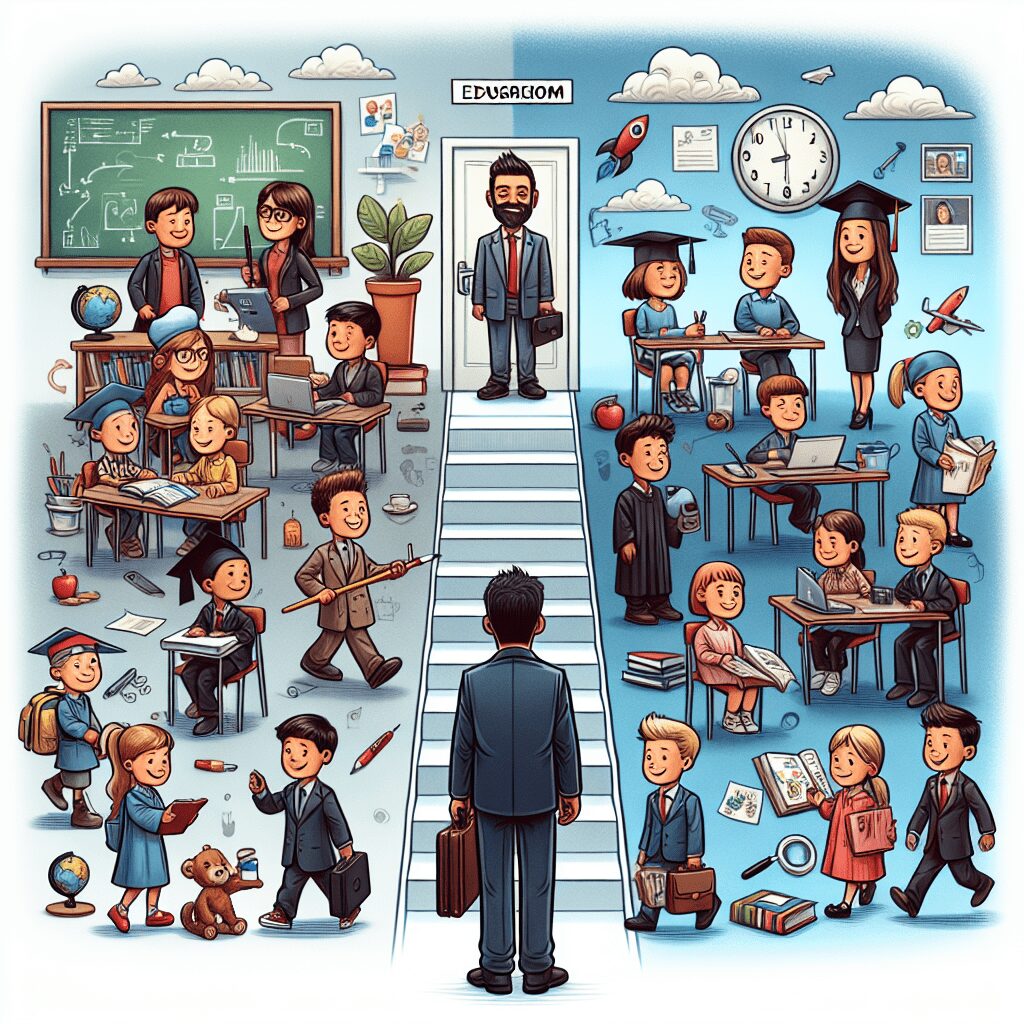From Classroom to Career: How to Equip Your Child for the Job Market
Transitioning from academic life to the job market is a crucial phase in a young person’s journey. As parents and educators, we hold the responsibility of guiding our children towards a successful future. Equipping them with the right skills, knowledge, and mindset significantly enhances their chances in the competitive job landscape they will inevitably face.
Overview
The job market is evolving rapidly. Many traditional roles are being supplemented, or even replaced, by technological advancements and shifting global trends. To thrive, children need to cultivate a unique blend of technical abilities, soft skills, and industry knowledge. Educators and parents must collaborate to foster environments conducive to this growth.
Why The Transition Matters
Understanding the impact of a solid educational foundation on future career success is essential. Learning doesn’t end at graduation. Continuous education and adaptability are vital traits in a world where industries can change overnight. Children learning how to navigate this landscape can lead to fulfilling careers. A proactive approach now paves the way for lifelong learning.
Who is Involved?
This transition involves several key players:
- Parents – They play a fundamental role in instilling values and emphasizing the importance of education.
- Educators – Teachers can develop curricula that emphasize real-world applications of knowledge.
- Mentors and Professionals – Engaging with industry professionals offers practical insights and experience about the job market.
Who Will Use These Skills?
The skills cultivated during this transition impact various groups, from students entering the workforce straight out of high school to college graduates seeking their first job. Additionally, professionals looking to pivot careers will also benefit from these essential skills. Everyone must understand emerging technologies and interpersonal dynamics.
What is Required?
To pave the path to successful careers, several skills and attributes are vital:
- Communication Skills – Verbal and written forms are essential in every professional setting.
- Critical Thinking – The ability to analyze and solve problems is invaluable.
- Collaboration – Working well with others enhances workplace harmony and productivity.
- Adaptability – Embracing change is necessary in today’s fast-paced world.
- Technical Skills – Familiarity with technological tools relevant to specific industries is crucial.
- Time Management – Prioritizing tasks effectively can lead to better outcomes.
- Networking – Building relationships can open doors to future opportunities.
- Emotional Intelligence – Understanding oneself and others fosters better workplace interactions.
- Leadership Potential – Inspiring others to achieve shared goals is a significant asset.
- Curiosity – A desire for continuous improvement and learning sets successful individuals apart.
Where to Acquire These Skills
Skills can be acquired in multiple settings:
- Schools – Modern curricula should integrate soft skills training alongside traditional subjects.
- Extracurricular Activities – Clubs and sports can enhance teamwork and leadership skills.
- Online Courses – Many platforms offer accessible courses focusing on specific skills.
- Internships and Volunteer Work – Hands-on experience provides real-world applications of classroom learning.
- Workshops and Seminars – Attending events can offer specialized knowledge and networking opportunities.
When to Start the Process
Introducing career-related education should start early. Engaging children in conversations about careers at a young age sparks their interest and helps them see the relevance of what they learn in school. By high school, structured career pathways should be discussed to prepare them for post-graduation transitions.
How to Support Your Child
Supporting your child in skill development is both rewarding and essential. Here are practical strategies:
- Encourage Exploration – Help them discover interests through varied activities.
- Promote Lifelong Learning – Foster a love for learning through reading and exploration.
- Model Professional Behavior – Demonstrating work ethics and professionalism inspires children.
- Provide Constructive Feedback – Guide them with insights into improving their performance.
- Facilitate Networking Opportunities – Introduce them to professionals to build connections.
- Support Independence – Allow them to make choices and own their decisions.
- Teach Resilience – Help them navigate setbacks and learn from failures.
- Promote Creativity – Encourage them to think outside the box and innovate.
- Set Goals Together – Help them establish achievable career goals and actionable plans.
- Celebrate Achievements – Recognizing efforts fosters motivation and confidence.
Pros and Cons of Early Career Preparation
Embracing early preparation comes with both benefits and challenges:
Pros:
- Builds essential skills early.
- Enhances self-awareness and confidence.
- Increases competitive edge in the job market.
Cons:
- Can create excessive pressure.
- May lead to burnout if balanced improperly.
- Risk of narrow focus on specific career paths too soon.
Similar Products/Resources to Consider
Here are resources that effectively support career preparation:
- Online Learning Platforms (e.g., Coursera, Udemy)
- Workshops on Resume Building (local community centers)
- Networking Events (career fairs at schools)
- Mentorship Programs (professional organizations)
- Books on Career Development (biographies of successful individuals)
Opinions, Examples, and Comparisons
Successful individuals often credit their early experiences in building soft skills and adaptability. Noteworthy business leaders frequently emphasize the importance of resilience and continuous learning. Schools that integrate experiential learning provide students with platforms to make mistakes and learn from them, preparing them well for future challenges. Comparing career-oriented schools to traditional ones reveals a significant gap in adaptability and readiness.
FAQs
1. How can I help my child develop essential skills?
Encourage them to participate in extracurricular activities and engage in open discussions about their interests and future goals.
2. What resources are best for skill development?
Utilize online courses, workshops, and mentorship connections to expose your child to diverse experiences.
3. When should I start discussing career options with my child?
Begin conversations early, and increase focus on specific careers during middle and high school.
4. What should I do if my child feels overwhelmed by career choices?
Support them in exploring various options and remind them that many paths are flexible and adaptable.
5. How important are soft skills compared to technical skills?
Both are essential. Soft skills often dictate how well someone can collaborate and adapt, while technical skills provide the expertise needed for specific tasks.
Disclaimer: As an Amazon Associate, I earn from qualifying purchases. I may earn a commission from qualifying purchases as an affiliate. Please note that I only recommend products I believe will provide value to my readers.









